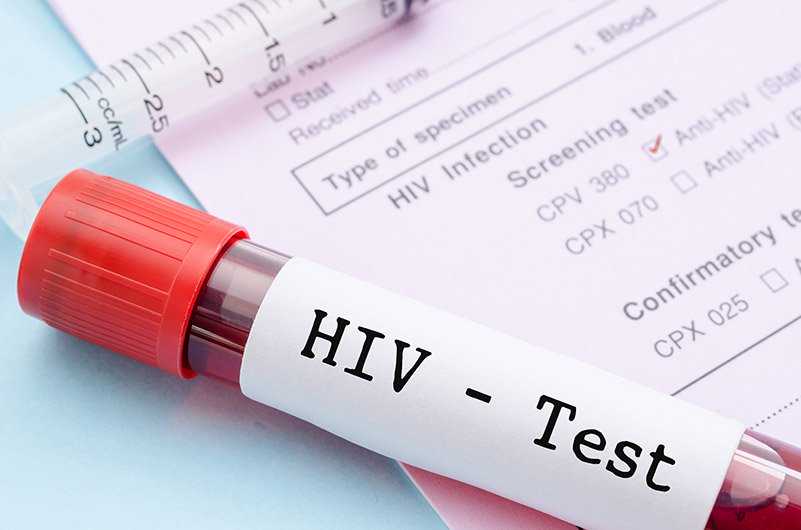
Sexual Health and Well-Being
Rapid STD Test and Treat Center
Confidential & Personalized Services
STD Clinic in Miami
Reducing financial and social barriers to care and promoting STD education, prevention, testing, early intervention, and treatment.
STD Services
HIV Treatment
AIDS Treatments
Chlamydia Treatment
Syphilis Treatment
Genital herpes treatments
Gonorrhea treatment
HPV treatment
Genital Warts treatment
Bacterial vaginosis treatment
Vaginal yeast infection treatments
Trichomoniasis Treatment
Hepatitis B Treatment
Hepatitis C Treatment
Crabs std treatments
PID treatment
Risk Reduction & Medication Adherence Counseling
PrEP Pill
PrEP is a daily pill that practically eliminates your chance of contracting HIV if taken consistently. PrEP stands for pre-exposure prophylaxis, this means it is intended as a preventive strategy to reduce the possibility of acquiring HIV (prophylaxis) before being exposed to the virus (pre-exposure).
The effectiveness of PrEP increases if it is taken consistently. If taken 7 days a week it can prevent HIV in up to 99% of cases. It takes around a week after starting PrEP for it to offer the highest level of effectiveness.
Although PrEP has shown to be effective in preventing the spread of HIV, it does not protect you from other sexually transmitted diseases (STDs) or infections (STIs). Therefore, it is important to still practice safe sex such as using a condom.
Consider using PrEP if:
- You have sex with multiple partners
- You’re partner has sex with multiple partners
- You have unprotected sex
- You inject drugs using shared or reused needles
- You have an HIV-positive partner
Truvada and Descovy are FDA approved PrEP medications that prevents HIV from multiplying in the body. Although Truvada is intended for all types of sexual intercourse, Descovy is not intended for vaginal sex.
Post Exposure Prophylaxis
If you suspect you were exposed to HIV, Post Exposure Prophylaxis (or PEP) can prevent the virus from taking hold in your body. However, PEP must be started within 72 hours of exposure, preferably as soon as possible. PEP is an antiretroviral medication, “anti” meaning “against” and “retroviral” referring to a retrovirus (a virus made of RNA material that can integrate its genetic material into the DNA of a host cell and replicate e.g HIV).
Post Exposure Prophylaxis is a preventative medication (prophylaxis) that attempts to stop the virus from replicating in the body after or “post” HIV exposure. PEP is only intended for emergency situations and should not be used as a recurring method to prevent HIV infection.
Generally, PEP is taken daily for 4 weeks following exposure. If you begin treatment quickly after exposure and take the medication according to the physicians regimen it is extremely effective. Upon conclusion of your PEP treatment you will undergo an HIV test to determine if the treatment was effective and a subsequent test 3 months later. Further studies will be determined based on the discretion of our Infectious Disease Doctors and your unique situation.
Consider using PEP if:
- You had unprotected sex with someone that is HIV positive
- You injected drugs with a needle that was used by someone that is HIV Positive
- You had an accidental needle stick that was used by someone that is HIV Positive
- You have been sexually assaulted

Exposed To HIV?
Contact us today to begin PEP treatment. The sooner you begin treatment after exposure the better chance you will not contract HIV. Every hour counts.
Interested in starting PrEP?
Schedule a visit for an evaluation at any of our convenient locations. PrEP is a prescribed medication so you must undergo a medical evaluation with one of our Infectious Disease Doctors. Our patient navigators will help to evaluate your insurance and financial abilities to determine the best course of action ot get you started.
Free HIV Testing and Screening
We provide free HIV testing for anyone that: suspects they were exposed to HIV, expresses symptoms of HIV, or would like to undergo routine HIV screening. HIV testing is completely confidential, quick, and non-judgmental. It is important to be transparent with our medical professionals about your exposure, symptoms, and sexual lifestyle so we can make the best decision regarding your care.
After HIV exposure, it takes a period of time for detectable levels of HIV, antigens, and antibodies to develop in the body. This is called the window period which can range from 10 days to up to 3 months. This variance is dependent on the type of test chosen. For example, tests measuring the amount of HIV in the blood will yield quicker results than antibody or antigen tests, which are described in greater detail below.
HIV tests can be performed using blood from a vein, blood from a finger prick, oral fluid, or urine. Some HIV tests can provide results within 20 minutes, others may take several weeks.
What are the three types of HIV testing?
HIV antibody tests are the most common HIV test because they are conveniently sold over the counter and can be easily self-administered.
When the body is exposed to foreign agents such as viruses or bacteria it produces antibodies to fight off the infection. HIV antibodies are produced by the immune system and can take 1 to 3 months for an adequate amount to be detectable.
Two FDA approved Home HIV tests include Home Access HIV-1 Test System and the OraQuick In-Home HIV Test. For Home Access, you will place your blood from a finger prick on a strip and mail it to a lab for analysis. To use Home Access you must call the manufacturer, to generate an anonymous code that you will use to mail your blood sample and receive your results, which will take about a week to come back. For OraQuick, you will use an oral swab to take a sample of your saliva for testing. The result will be ready within 30 minutes.
If you are HIV positive the next step will be scheduling an appointment with an infectious disease doctor to begin HIV treatment or follow up testing. Schedule an appointment today with some of the best infectious disease doctors in Miami.
Fourth generation tests (commonly referred to as antigen/antibody tests) look for the presence of antigens and HIV antibodies in the body. When the body is exposed to HIV, an antigen called p24, which is a protein that is part of the HIV, alerts the immune system. In response the immune system produces HIV antibodies that attempt to fight off the infection.
Antigen p24 is detectable sooner than HIV antibodies, between 2 and 4 weeks after exposure.
Antigen/antibody test can use blood from a vein or a finger prick, this is called a rapid antigen/antibody test.
Unlike antigen and antibody tests, NAT measures the amount of HIV in a milliliter of blood (this is called the viral load).
NAT is usually reserved for cases of high risk HIV exposure such as sexual assault and kneedle sticks or if a patients shows initial signs of HIV. This test is expensive and can reliably measure HIV in the body between 1 and four weeks of exposure.